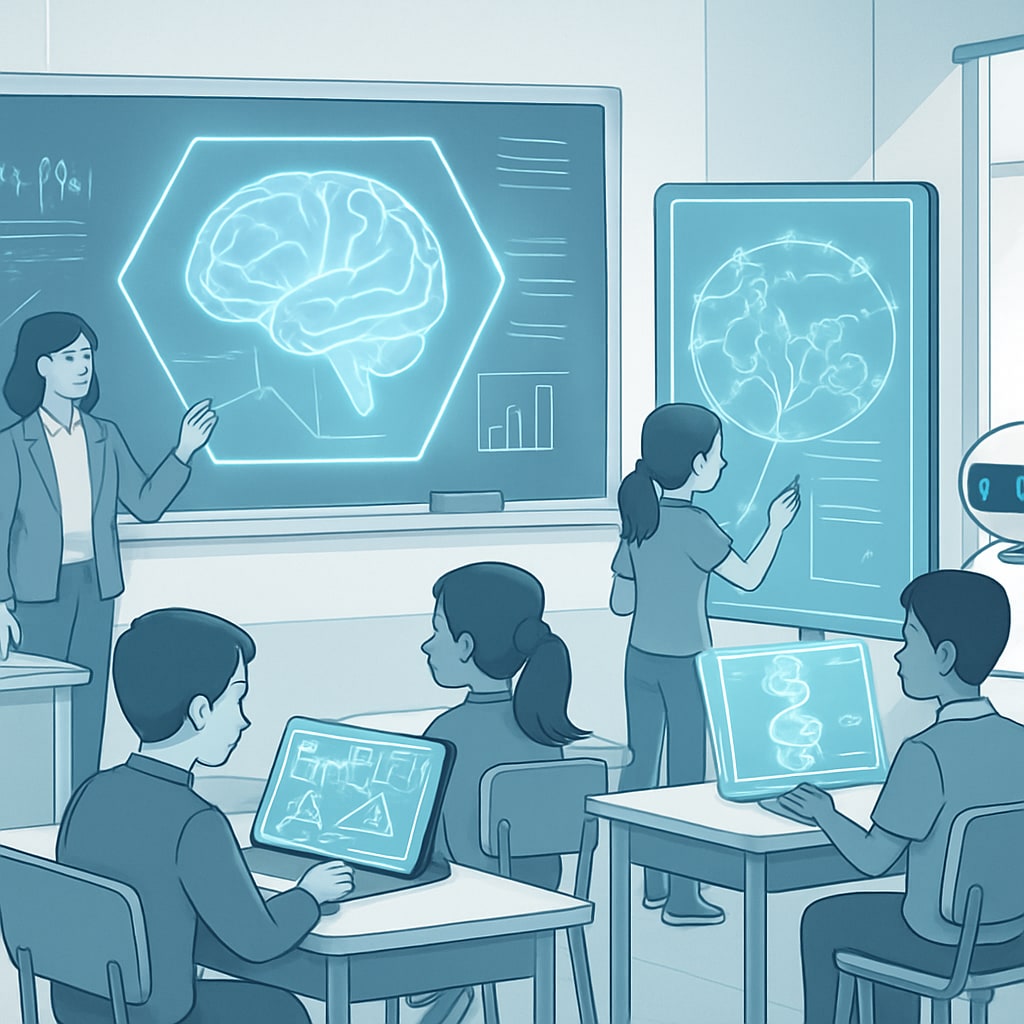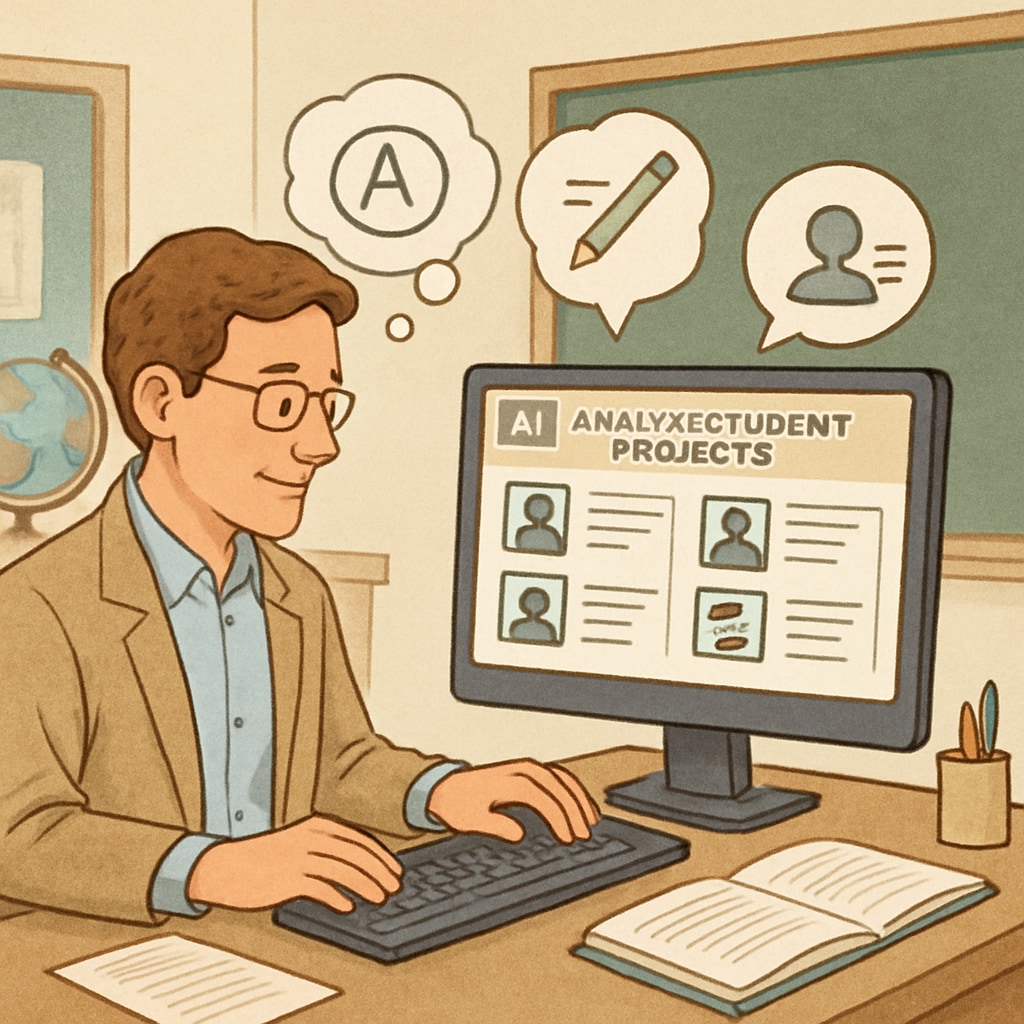The rapid development of artificial intelligence (AI) is reshaping industries across the globe. One area facing significant disruption is education, particularly K12 competitive exams. As AI continues to influence how we assess, learn, and work, the traditional methods of evaluation are being called into question. This shift highlights the urgent need for an education system that not only measures knowledge but also fosters critical thinking, creativity, and adaptability—key traits for success in an AI-driven world. Furthermore, the alignment of education with workforce needs, including employee selection, has become a pressing priority.
Why Traditional Competitive Exams Fall Short in the AI Era
For decades, K12 competitive exams have been the gold standard for assessing academic capabilities. These tests primarily measure rote memorization and standardized problem-solving skills. However, the advent of AI technologies—such as ChatGPT, automated essay graders, and adaptive learning platforms—has revealed the limitations of such assessments.
One key issue is that traditional exams fail to evaluate higher-order cognitive skills like critical thinking, emotional intelligence, and problem-solving in real-world contexts. In an AI-dominated future, where machines can outperform humans in repetitive and analytical tasks, these skills are essential for distinguishing human talent.

Moreover, the pressure to excel in competitive exams often leads to an overemphasis on test preparation rather than holistic learning. This not only stifles creativity but also places undue stress on students, which can have long-term mental health implications. As a result, there is a growing call for educational assessments that align more closely with the demands of the modern workplace and society at large.
Reimagining Education Assessment for the AI-Driven World
In the age of AI, education systems need to shift from a “one-size-fits-all” approach to more personalized and dynamic evaluation methods. Here are some key strategies for reform:
- Project-Based Assessments: Instead of relying solely on exams, schools can adopt project-based evaluations that require students to research, collaborate, and present solutions to real-world problems.
- AI-Powered Adaptive Testing: Leveraging AI to create adaptive assessments can help measure a student’s unique strengths and weaknesses more accurately.
- Holistic Portfolios: Encouraging students to build portfolios that showcase their skills, creativity, and extracurricular achievements provides a more comprehensive view of their capabilities.
- Soft Skills Evaluation: Incorporating assessments for communication, teamwork, and emotional intelligence will better prepare students for future roles.
Additionally, integrating AI-driven tools into the assessment process can make evaluations more efficient and objective. For example, AI can analyze patterns in student performance over time to offer actionable insights for individualized learning paths. These technologies also reduce teacher bias, ensuring fairer evaluations.

The Intersection of Education and Workforce Needs
The transformation of K12 competitive exams is not just about improving education; it’s also about aligning with the evolving demands of the workforce. Companies are increasingly valuing skills such as adaptability, innovation, and the ability to work alongside AI systems. Therefore, the education system must prepare students to thrive in an environment where human-AI collaboration is the norm.
For example, initiatives like IBM’s P-TECH schools, which combine academic education with technical training in AI and data science, demonstrate how education can be restructured to meet industry needs. By bridging the gap between classroom learning and workplace requirements, such models can serve as a blueprint for global reform.
Furthermore, reformed assessment systems can help employers identify top talent more effectively. Traditional metrics like test scores and GPAs are becoming less relevant in hiring decisions, with many companies now focusing on practical skills and problem-solving abilities. A revamped K12 education system that emphasizes these attributes would not only benefit students but also contribute to a more skilled and adaptable workforce.
Conclusion: A Call to Action for Policymakers and Educators
The rise of artificial intelligence presents both challenges and opportunities for education. To stay relevant in this rapidly changing landscape, K12 competitive exams must evolve. Policymakers, educators, and industry leaders must work together to reimagine assessment systems that prioritize critical thinking, creativity, and adaptability—traits that machines cannot easily replicate.
As we navigate this transformation, the ultimate goal should be to create an education system that not only measures academic success but also cultivates the skills needed to thrive in an AI-driven world. By doing so, we can ensure that the next generation is equipped to lead, innovate, and make meaningful contributions to society.
Readability guidance: The article uses short paragraphs, lists, and clear transitions to enhance readability. It avoids overly complex language and maintains an active voice throughout. Images have been strategically placed to support the narrative and provide visual context.


